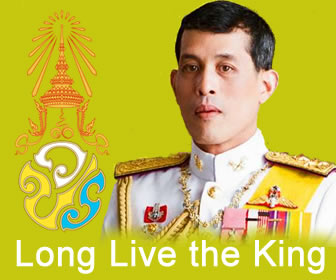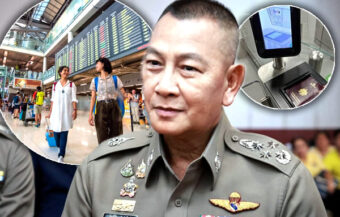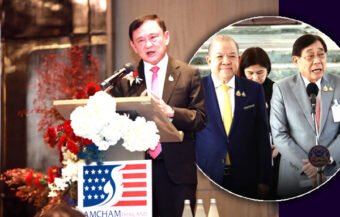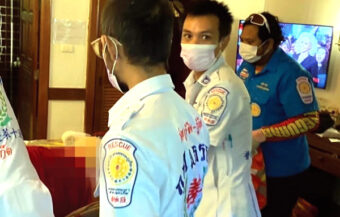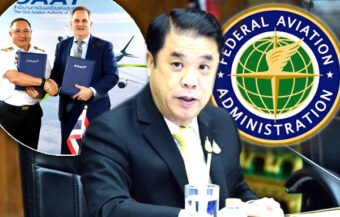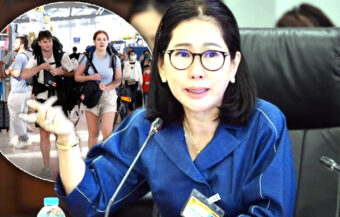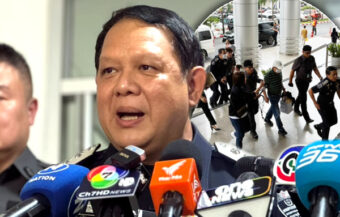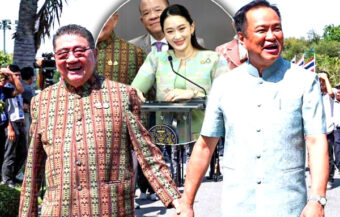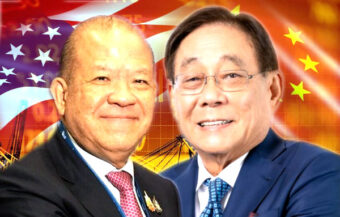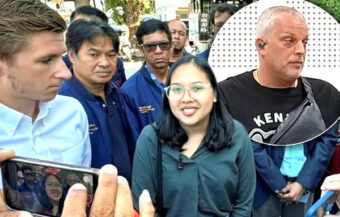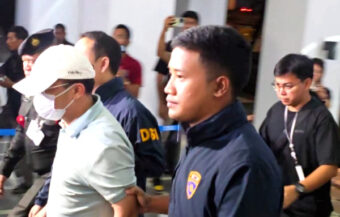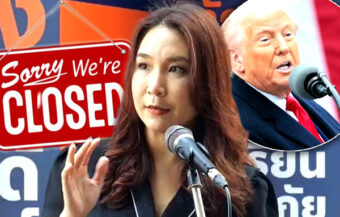Young people across Myanmar take up arms as the wave of protests against the February 1st coup morphs into an effort to create an alternative government and army to overthrow the isolated and increasingly detested military or the ‘Tatmadaw’ based in Burma’s modern capital Nay Pyi Taw, far from the country’s thriving commercial sector Yangon. The vote, on Friday at the United Nations in New York, with overwhelming support from western and stable countries worldwide for a resolution tabled by tiny Liechtenstein, is recognition that what is happening now in the troubled country in response to the military overthrow of democracy is not business as usual.
Thailand found itself with some strange bedfellows on Friday night at the United Nations in New York when it, like Russia and China abstained in a General Assembly vote which was the strongest to date in calling for Myanmar’s return to democratic rule and showed the international community is waking up to what is developing into a civil war in the kingdom’s western neighbour. Ironically, Myanmar itself supported the resolution along with the United States, European Union and western countries as its UN representative, Kyaw Moe Tun, continues to reject the legitimacy of the junta at home and is being supported by UN officials.
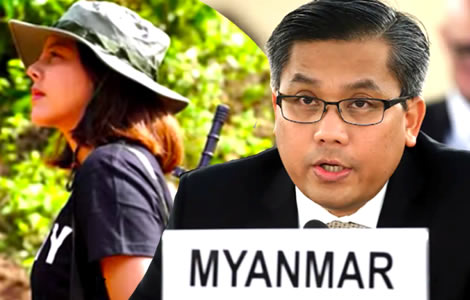
On Friday, Thailand was one of 36 countries which abstained in a significant UN vote calling on all member states to ‘prevent the flow of arms’ to Myanmar because of the escalating civil conflict in the country between the Burmese security forces, the ‘Tatmadaw’ and the public.
The non-binding resolution also went further than previous statements by the body in condemning the February 1st coup by the military in the country which sparked the current unrest which has seen public protesters ally with armed groups and militias in autonomous areas in what is developing into a full-blown civil war.
Junta chief admitted recently that he no longer controls parts of the country as resistance stiffens
The deteriorating situation in Myanmar recently led the junta strong man, General Min Aung Hlaing, to admit that the military-installed government no longer controls many parts of the country as the resolve of the public has grown and not diminished with the application of violent force and terror by the security services with indiscriminate killing and late-night detentions of junta critics and opponents in the country’s urban areas or townships.
Thailand voted with a strange alliance except for India which may be thinking like Bangkok on the issue
In the vote on Friday, at the United Nations headquarters in New York’s Manhattan, Thailand found itself among a collection of 35 other nations including Venezuela, Cuba, China, Zimbabwe, Yemen, Somalia, Bahrain, Algeria, Cambodia, Laos, Iran, Uganda, Togo, Saudia Arabia, Ethiopia, Bangladesh, Mali, Mauritania, Russia, Syria, Timor Leste, Pakistan, Djibouti, Mongolia, Egypt, Eritrea, Côte D’Ivoire, Burkina Faso, Nepal, Togo, United Arab Emirates, Bhutan and Sri Lanka which can be either described as anti-western, anti-democratic, pro-Chinese, troubled or isolated.
Only India among the list stood out because of that country’s traditional non aligned status and of its unique concern over the destabilising nature of events in its neighbour with which it shares a 1,468km border.
This may also have been the thinking of officials in Bangkok where the Thai government is seen by the international community as a useful interlocutor in what is gradually deepening into a major regional problem that also has a growing geopolitical dimension with the junta now being strongly supported by Russia and China.
Myanmar voted in support of the resolution calling for the restoration of democracy, censuring the junta
Ironically, Myanmar itself supported the resolution on Friday as the renegade Myanmar representative at the United Nations, Kyaw Moe Tun, voted against the junta at home which he refuses to recognise as the lawful voice of his country.
The diplomat is still recognised by the United Nations as the legitimate representative of Myanmar at the body.
His vote was cast among 119 countries which supported the resolution proposed by the tiny European state of Liechtenstein and which was backed by both the European Union and the United States as well as top UN officials.
Renegade envoy Kyaw Moe Tun, a hero at home among the public, castigated the ‘murderous military’ as he applauded the vote and called for stronger action
The principled envoy has been threatened with prosecution for treason at home because of his wayward stand in defence of democracy. Nonetheless, he was unrelenting in his comments after the vote.
He has become a hero and an inspiration at home for showing courage and leadership.
‘Selling weapons to the murderous military can be construed as to aid and abet the military to commit serious crimes such as crimes against humanity, ethnic cleansing, war crimes and genocide,’ he said.
He took the opportunity to point out that such a resolution was long overdue and that stronger action should be taken against the military which has overthrown the will of the people in Burma.
He called for a concerted effort to target the bank accounts of the military establishment in Myanmar and continued international pressure to reverse the coup.
Highly unusual vote of the General Assembly and resolution on the situation in Myanmar on Friday
Nevertheless, he was enthusiastic about the vote of the General Assembly of the United Nations on the motion which is highly unusual on a matter relating to the internal affairs of a specific country.
So was his European Union colleague.
‘It is the broadest and most universal condemnation of the situation in Myanmar to date,’ declared Olof Skoog, the European Union representative at the United Nations. ‘The EU is proud of the resolution just adopted by the UN General Assembly. It sends a strong and powerful message. It delegitimises the military junta, condemns its abuse and violence against its own people and demonstrates its isolation in the eyes of the world.’
Call for the release of political prisoners
The resolution, passed by a large majority of countries worldwide, called for the full restoration of democracy in Myanmar and the release of political prisoners.
Since February, Assistance Association for Political Prisoners (AAPP), an observer group in the strife-ridden country, has estimated that at least 860 people have been killed by security forces there including young children in what is descending into an increasingly violent struggle which has seen the economy and normal life there subsumed into chaos.
UN Secretary-general Antonio Guterres calls for restoration of democratic government
UN Secretary-general Antonio Guterres said: ‘We absolutely must create the conditions for democracy to be reinstated.’ He spoke before the vote which he said he hoped would send a ‘very clear message’ reflecting the stance and judgment of the international community.
The resolution also called for a key UN envoy to Myanmar, Christine Schraner Burgener, to be allowed to visit the country as well as unimpeded and safe passage of humanitarian aid.
Belarus, the only country that voted against but those who abstained were critical after the assembly vote
Only one country, Belarus, the landlocked country neighbouring Russia, known to many as the last dictatorship in Europe and whose leader Alexander Lukashenko staged what has been described by western powers openly as a nakedly fraudulent election last year, voted against the resolution.
But its critics, among the 36 countries including Thailand who abstained, also made their views known after the vote.
Belarus, Russia and China said the text should not have been so ‘country specific’ with the Russian representative questioning the role and direction now being taken on by the United Nations.
Bangladesh, Egypt and Iran stood up their abstention vote on the resolution as being based on the lack of action in calling the leadership of Myanmar to account over the Rohingya crisis in western Burma which began in 2015.
China says the conflict is a ‘domestic issue’ echoing Thailand’s PM Prayut at the outset of the crisis
However, China, echoing the line taken, at the outset, by Thai Prime Minister Prayut Chan ocha characterised what is happening in Myanmar as a domestic issue.
FM Don to attend Myanmar ASEAN summit with high stakes for Thailand as civil war there looms large
‘Myanmar’s current issues represent a twist and turn in its political transition process. Essentially, it is a domestic issue,’ said the Chinese deputy permanent representative to the United Nations Geng Shuang. ‘History has shown that external blind pressurisation or imposition of sanctions on Myanmar is not only ineffective but, quite, on the contrary, may aggravate the issue.’
UN rapporteur for Myanmar warns that the junta continues to threaten lives in in the country
In recent weeks, a UN special rapporteur for Myanmar, Mr Tom Andrews, has warned that the conflict between the military junta and whole communities which has already seen extensive loss of life, was escalating and posed a threat to food security in the country.
‘The junta’s brutal, indiscriminate attacks are threatening the lives of many thousands of men, women and children in Kayah state.’ the UN envoy on human rights explained on social media site Twitter.
Young people from urban centres or townships are trekking into remote regions to learn how to fight
It comes as young men and women from the townships, which have been at the heart of the nearly five months of an uprising since early February, are beginning to trek to remote regions to be trained by militia groups in all-out warfare against the government and its military forces.
This has coincided with the organisation of ‘defence forces’ among communities and the creation of an alternative Burmese government supported by a ‘Federal Union Army’ centred around the elected representatives returned in last November’s election.
Aung San Suu Kyi’s party swept to victory in the November election threatening the military’s continued grip on power under democratic rule
It was this election which sparked the coup in the first place after Aung San Suu Kyi’s National League for Democracy Party swept the boards in the poll, a result which threatened the military’s continued grip on power in the tentative and balanced form of democracy that the country had enjoyed since the 2015 General Election.
This had provided the military with a significant hold over key areas of government.
Myanmar closer to civil war as ‘unity’ government announces first step to a ‘Federal Union Army’ to fight junta
Young people in Myanmar, many of whom have never even seen or heard a gun being fired, are now being trained at bases in autonomous regions such as Karen State where the Karen National Liberation Army has already been fighting a civil war with the Myanmar government and armed forces since 1949.
Indiscriminate shelling and aircraft raids show how frightened the government is of the new alliance between the public and ethnic militias
This, in turn, has led to an escalation of conflict in some areas of the country as the military has used indiscriminate shelling and air force raids against it giving some idea of how dangerous the junta, isolated in Myanmar’s remote capital, Nay Pyi Taw, meaning the abode of kings, sees this developing alliance between its enemies and the vast majority of the public.
Friday’s UN resolution indicates that the international community is also beginning to realise that the February 1st coup in Myanmar does not mean business as usual for the country long dominated and controlled by its military.
32-year-old Burmese pageant queen and celebrity takes up arms and urges others to do the same
Even seasoned observers of Myanmar now accept that the current situation is unprecedented and the alliance between the young in the country and ethnic minorities is a highly significant development.
Myanmar facing all-out revolution as the bloody struggle between the army and the public spirals out of control
The determination of the young people in Myanmar to not only protest but to overthrow what they see as the oppression of the out of touch military was brought home to many when a photo appeared online of 32-year old beauty queen and now gymnastic instructor, Htar Htar Htet, wearing military fatigues and carrying a gun with an exhortation to fight back.
Young university student took Bangkok by storm at the end of March, she called for help to fight tyranny
At the end of March, in Bangkok, 22-year-old Yangon university student Thaw Nandar Aung or Han Lay was a participant in the same pageant, the Miss Grand International which made Ms Htar Htar Htet a celebrity also.
She called for help to fight tyranny as the reports from Yangon, that weekend, outlined how the military had killed young children on the streets, some dying in their mother’s arms.
The younger beauty queen used the stage and the international audience of the beauty pageant to cry out for international support for the public uprising in Myanmar. ‘What are you waiting for before you take action?’ she asked.
For the younger generation in Thailand’s neighbouring country, the die is already cast and their struggle has just begun.
Join the Thai News forum, follow Thai Examiner on Facebook here
Receive all our stories as they come out on Telegram here
Follow Thai Examiner here
Further reading:
FM Don to attend Myanmar ASEAN summit with high stakes for Thailand as civil war there looms large
Crisis in Myanmar threatens to escalate as Thai authorities monitor the situation on a daily basis
Threat to Thailand from the encroaching dragon of the North as Chinese factories in Myanmar burn
Coup boss writes to Prayut for support as UK man with Chinese partner flees troubled Myanmar
Australian arrested in Myanmar as coup takes on significance for US Chinese rivalry in the region

